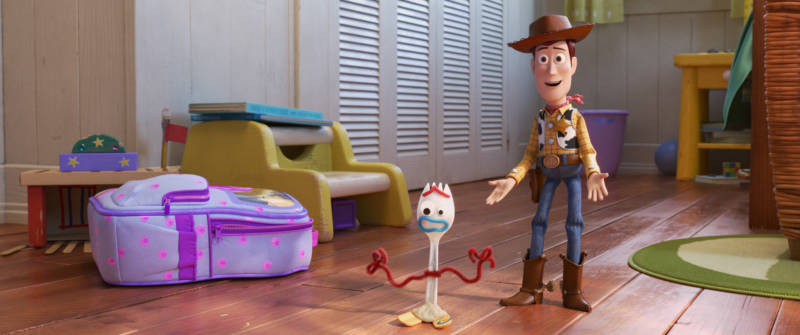The Toy Story movies are about the secret lives of dolls and action figures that find their deepest fulfillment in a child's embrace. But they're really about what it means to be human: the joys of love and friendship and the pains of rejection and loss. But even more than the earlier films, Toy Story 4 feels haunted by the idea of impermanence. What happens when we outgrow something we once cherished? To put it another way: After three Toy Story movies, do we really need a fourth?
The director, Josh Cooley, and the writers, Andrew Stanton and Stephany Folsom, seem to have wrestled hard with that question, and they've come up with an entertaining if not entirely satisfying answer. Toy Story 4 is as funny and dazzling as you'd expect from a Pixar entertainment, but it's also a more ungainly piece of storytelling than its predecessors: The humor is coarser around the edges and the plot takes wild, audacious leaps that don't always pay off.
As the movie opens, Sheriff Woody (voiced again by Tom Hanks) is in the rare position of no longer being the favorite toy in the bedroom. He's aged into an avuncular figure, concerned with making sure that he and his friends are there for their owner, Bonnie, when she needs them. But one day Bonnie comes home from kindergarten with a creature she made herself out of a plastic eating utensil, a pipe cleaner and two googly eyes. His name is Forky, and Bonnie's love has brought him to life.
But Forky, voiced with neurotic terror by Tony Hale, sees himself not as a toy but as a piece of trash, which is why he keeps trying to hurl himself into the nearest wastebasket. As a mini-Frankenstein with suicidal urges, Forky represents the kind of existential conundrum that future dissertations are made of; perhaps only Pixar could make a children's movie that leaves you pondering the origins of the soul and the nature of free will. Still, for the first time in a Toy Story picture, I found myself resisting parts of the premise.

9(MDAxOTAwOTE4MDEyMTkxMDAzNjczZDljZA004))

